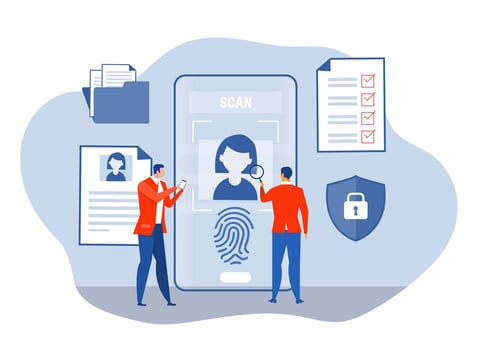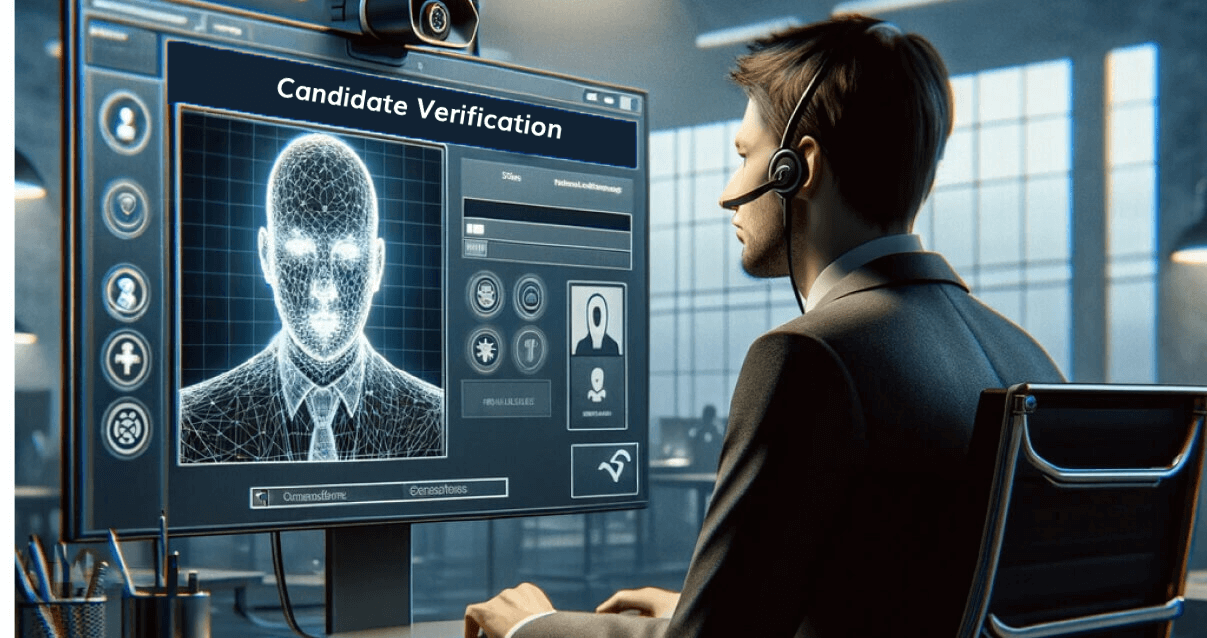Remote exams have gained significant traction in recent years, especially with the advent of remote learning. Ensuring exam integrity in online assessments remains a challenge. One promising solution is the integration of biometric authentication into online proctoring systems.
What is Biometric Authentication?
Biometric authentication utilizes unique physical characteristics of an individual to establish a secure means of confirming test-takers' identities. This technology not only offers a seamless and user-friendly experience for test-takers but also prevents impersonation incidents during online assessments.
What is the Role of Biometric Authentication in Proctoring?
Online proctoring aims to maintain the integrity of online exams by monitoring test-takers for any signs of cheating or misconduct. The traditional proctoring methods have limitations, including the inability to verify the identity of test-takers accurately. Biometric authentication emerges as a robust solution, offering a sophisticated means of confirming individuals' identities based on unique physiological traits. By integrating biometric authentication into online proctoring, organizations can significantly enhance the effectiveness of their exam monitoring processes.

What are the Pros and Cons of Biometric Authentication in Proctoring?
Pros:
- Enhanced security: Biometric authentication provides a high level of security by utilizing unique physiological traits for identity verification.
- Convenience: Biometric authentication offers a seamless and user-friendly authentication process, eliminating the need for passwords or PINs.
- Deterrence of cheating: The presence of biometric authentication acts as a deterrent to cheating, discouraging test taker from attempting to impersonate others during online exams.
Cons:
- Privacy concerns: Collecting and storing biometric data raises privacy concerns, as it involves sensitive personal information that could be vulnerable to misuse or unauthorized access.
- Technical limitations: Biometric authentication systems may encounter technical challenges, such as false positives or failures to accurately recognize individuals, leading to authentication errors.
- Cultural and accessibility issues: Certain biometric modalities, such as facial recognition, may raise cultural concerns or pose accessibility challenges for individuals with disabilities, requiring careful consideration and accommodation.
What are the Best Practices for Implementing Biometric Authentication?
To ensure the successful implementation of biometric authentication in proctoring, organizations should adhere to the following best practices:
- Secure data handling: Encrypt biometric data during transmission and storage to prevent unauthorized access.
- Improved accuracy: Biometric authentication reduces the risk of identity theft or impersonation, ensuring that only authorized test-takers access online exams.
- Transparency and consent: Inform test-takers about the use of biometric authentication and obtain their consent before collecting the data.
- Streamlined authentication process: Biometric authentication eliminates the need for manual verification processes, saving time and resources for both test taker and proctors.
- Regular auditing and updates: Continuously monitor and evaluate biometric authentication systems to identify and address any security vulnerabilities or performance issues.
Conclusion
Biometric authentication holds great promise for enhancing the integrity of online exams and ensuring the credibility. By leveraging biometric identifiers organizations and proctoring providers can strengthen the security of online assessments and uphold exam integrity in the digital age.
Explore how integrating biometric authentication into your talview online proctoring can enhance the integrity of your remote assessments. Contact us for a demo and explore how our solutions can help maintain the credibility of your exams.


Leave a Reply